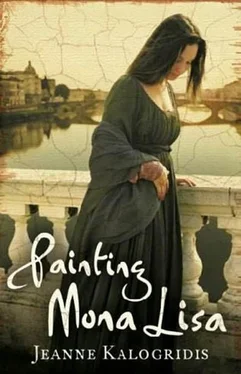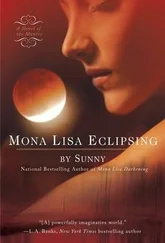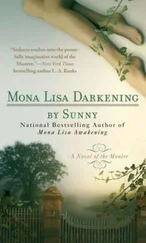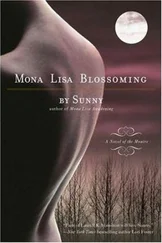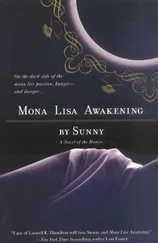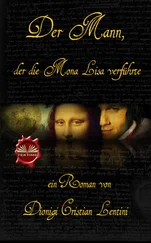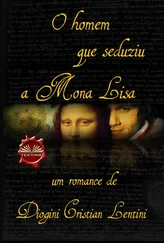“Surely you are doing this for some reason other than a sense of obligation to dead men.”
He did not answer at once. He turned his face toward the viewless window, bathing his features, his hair, in the buttery glow. His eyes were clear as glass, almost colorless, filled with light. “I saw your mother,” he said.
He spoke so softly I was not sure I had heard aright. I jerked up my head. “What do you mean? You knew my mother?”
“I was acquainted with her. She and your… her husband, Ser Antonio, were often guests at the Medici palazzo in those days. Before she became infirm. I was never introduced to Ser Antonio-he was quite shy and often remained out in the garden, or speaking to the stablehands. But I sat twice beside your mother at banquets. And I spoke to her often at Carnival celebrations. Like you, she had a good eye for art. She appreciated it, understood it.”
“Yes.” I could not speak beyond a whisper. “So she was often at the Medici palazzo?”
He gave a slow nod. “Lorenzo was quite taken with her-as a friend. He showed her his collection, of course. He respected her opinion greatly. Her family had always been friends with the Tornabuoni-the family of Lorenzo’s mother-and that was how they met. Through Lorenzo, of course, she met Giuliano.”
“Was she-did everyone know she was having an affair with him?”
His eyelids lowered. “No, Madonna. Your mother was a woman of great virtue. I honestly don’t believe that she and Giuliano-” He broke off; to my surprise, he flushed.
“You don’t believe they were… together… until?” I prompted. I did not want to embarrass him, but I had waited for years to learn the truth about my mother’s life.
He lifted his gaze, but would not look directly at me. “The night before Giuliano was murdered-I saw her on the Via de’ Gori just outside the Medici palazzo. She was going to see him; she was radiant with joy, so happy. And… the light was very tender, very gentle. It was dusk, and she stepped from the shadows. I…” His voice trailed; he was overwhelmed by the task of trying to convey what he had seen, something numinous and fleeting. “There was no harshness of line, no clear delineation between her skin and the air that surrounded it. She emerged from the darkness, yet she was not separate from it, not separate from the sky or the street or the buildings. And it seemed as though… she were outside time. It was an amazing moment. She looked to be more than a woman. She was a Madonna, an angel. The light was… remarkable.” He stopped himself; his tone became practical. “You must forgive me for such foolish ravings.”
“They’re not ravings. They sound like poetry.”
“You know how beautiful she was.”
“Yes.”
“Imagine her a hundred times more beautiful. Imagine her lit from within. I wanted very badly to paint her, but… Giuliano was murdered, of course. And then Anna Lucrezia fell ill.”
“She wasn’t ill,” I said. “Her husband couldn’t father children. He struck her when he learned she was pregnant.” It felt odd to speak of my father so distantly, so coldly, when I loved him despite all his sins.
Leonardo’s eyes flickered with anger and pain, as if he had been struck himself. “So. He always knew.”
“He always knew.”
It took him a long moment to gather himself. “I am sorry for it. That night, I had resolved to paint your mother. I had wanted to capture that beautiful essence and show her as joyful. As content. The way she was then, going to Giuliano, not the way she became. She had a natural radiance-and you have it, too, Madonna Lisa. I see her in you. And if I could be permitted to record it…” He broke off. “I know it is terribly awkward to have you sit now, but I have learned the capriciousness of fate. She was with Giuliano that night; she was happy. And the next day, he was gone. Who knows where you or I will be tomorrow?”
He might have said more in an effort to make his argument, but I silenced him by laying a hand upon his forearm. “Where,” I asked, “would you like me to sit?”
He let me look at the charcoal sketch upon the easel first, the cartone , or cartoon, as he called it. It was made from the drawing done in the garden at Santo Spirito, the day after Lorenzo’s funeral. No longer was I glancing over my unfinished shoulder at the artist, as I had been in the silverpoint drawing; now I sat with my full face shown directly to the viewer, with my shoulders and body turning only slightly away. No longer was I only a head with the merest intimation of shoulders and headdress; I had hair, long and free as a young girl’s. I had a décolleté that would bring down the wrath of Savonarola’s militant cherubs. I had hands, and enough of a body to convey the fact that I was sitting.
As I stood beside Leonardo, gazing at the drawing on the easel, he glanced at me, made a small sound of disgust, and at once retrieved a chicken feather from the little table and very lightly swept it over the paper. The feather’s edge darkened; the charcoal beneath it disappeared.
“Sit,” he said, utterly distracted. “The chin. I must get it right.”
I went and sat. Feather still in his hand, he followed me and, with meticulous fussiness, arranged me just so: chin perfectly straight, with no tilt up or down, head turned at a precise angle away from my body. He did not care, at the moment, about the positioning of my hands. In fact, he gave me my wine goblet and insisted I have some before he started.
I sat in silence as he finished erasing his crime; then he took up the charcoal fastened to its wooden stick and, with a deft, flourished move, corrected the chin. And then he stared at me. Stared and checked my nose against the drawing, my right eye, my left, each eyebrow, and my nose. I grew restless and let my gaze wander: It lit upon the wall near the easel-on a small panel of wood that had been coated with plaster and was drying. Next to it was a sharp wooden slice which had obviously been used to scrape the panel’s surface smooth.
“Is that what you will use-for the painting?” I asked.
He frowned, faintly annoyed at the interruption. “Yes. It needs to dry for a few days.”
“Is the surface made of just plaster?”
“Plaster,” he said, “of a sort. Very fine gesso sottile , plaster of Paris with some of my own adulterations. First comes the white poplar. Then good linen is glued to it, to make a base for the gesso. Then it is made very smooth, like ivory. When it dries, I’ll transfer this sketch to it.”
“You’ll copy it?”
“I’m far too lazy for that. I prick the cartone , attach it to the gessoed panel, and sprinkle powdered charcoal over it. It goes on very quickly that way. Then we start the painting. Which we will do the next time we meet, if fate permits.” He gave a small sigh. “Please take some more wine, Madonna.”
“You are trying to get me drunk,” I said. I meant it as a joke, but when I caught his eye, he did not smile.
“We have enough difficult things to talk about, don’t you agree?”
In answer, I took an earnest sip of my wine. It was cheap and slightly sour. “Why don’t we talk about them, then? I’m tired of appearing content and angelic.” I stared up at him. “You didn’t bring me here just to paint my portrait or speak of happier times.”
His tone darkened. “Very well. Tell me the truth, Madonna. I… saw you with Francesco del Giocondo-”
He was going to say more, but I interrupted. “When?”
“At your child’s baptism.”
So. He had been watching when Salai arranged for me to get the note.
He continued. “Do you love him?”
His tone was bitter. My cheeks burned; I stared down at the stone floor.
Читать дальше
Конец ознакомительного отрывка
Купить книгу
